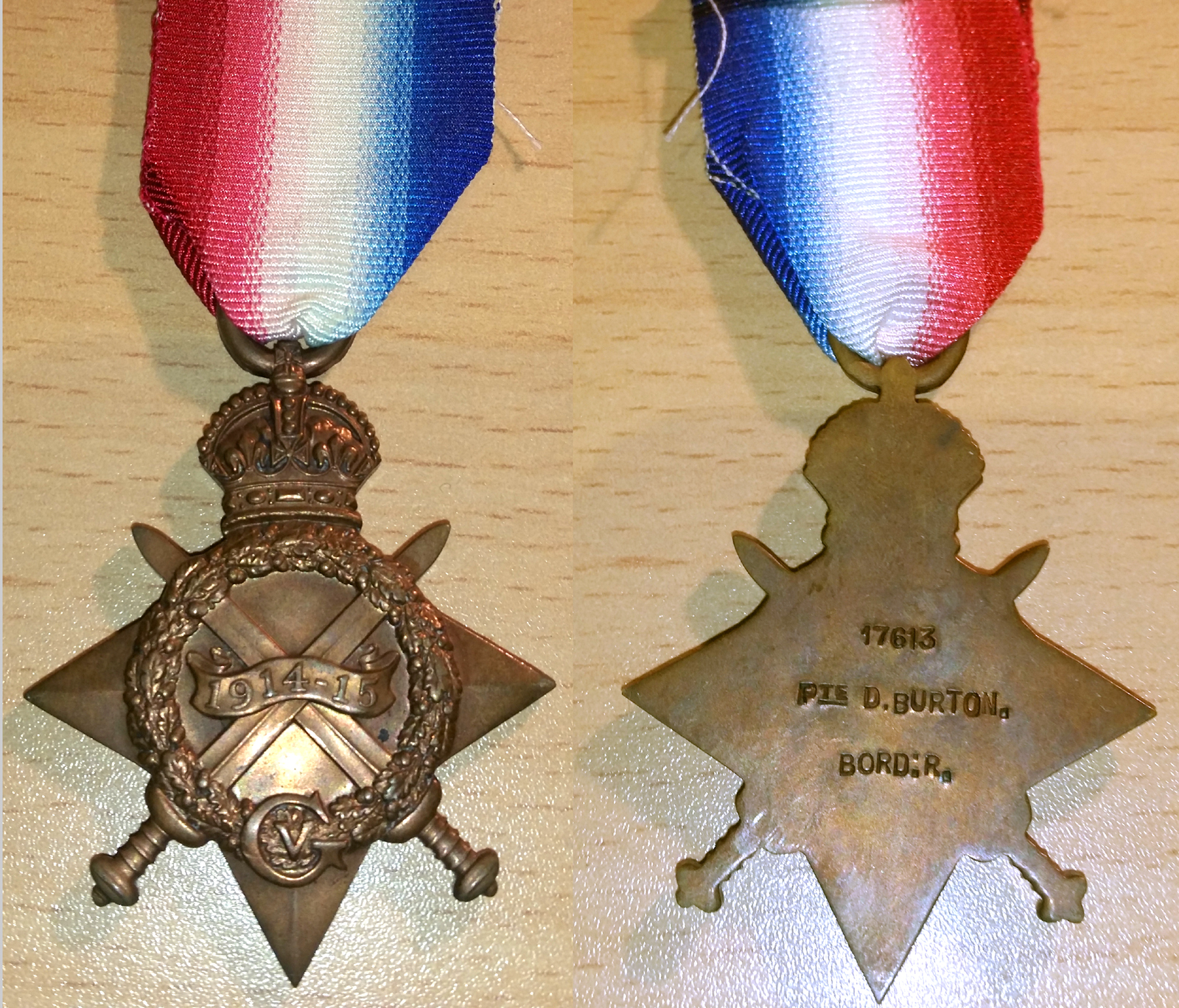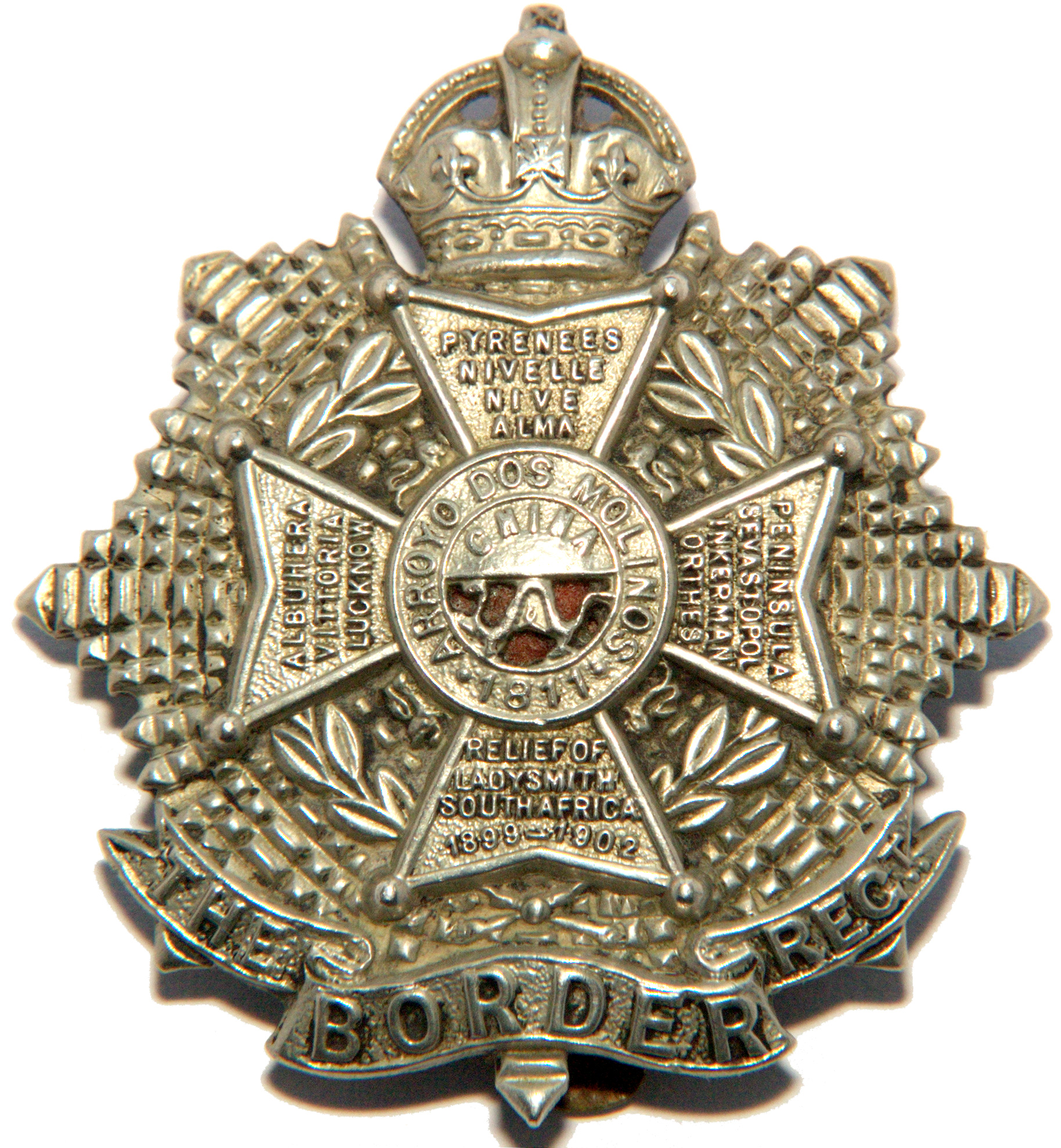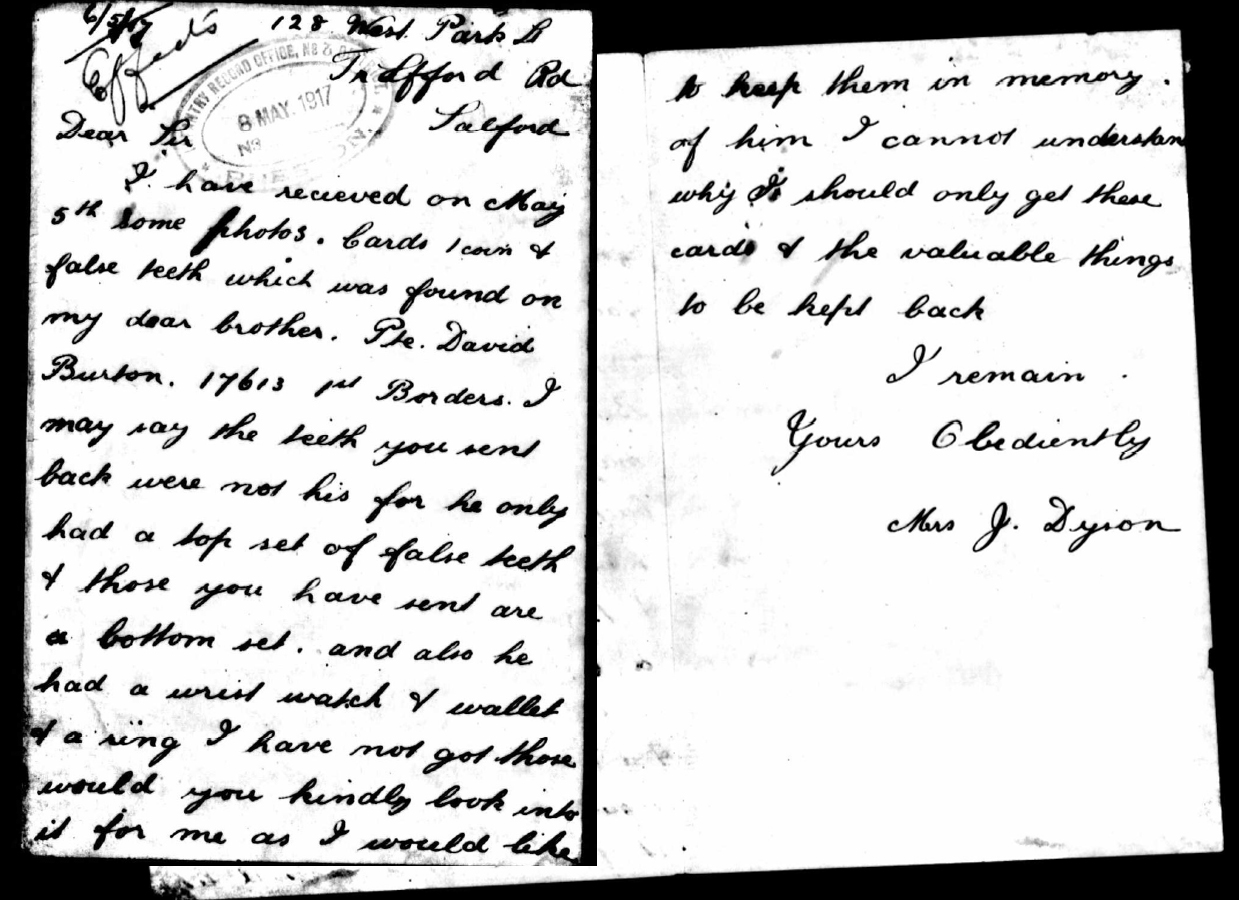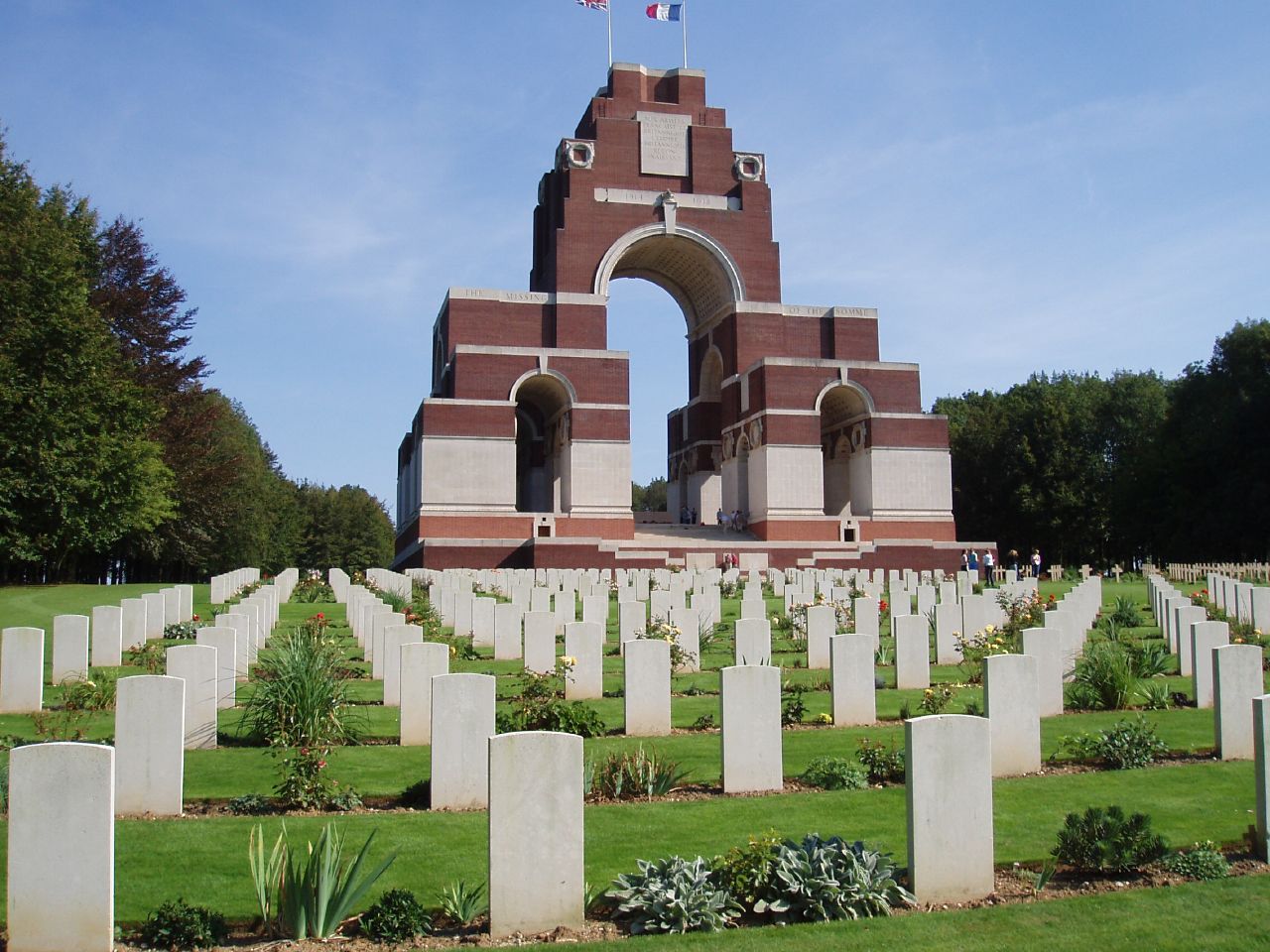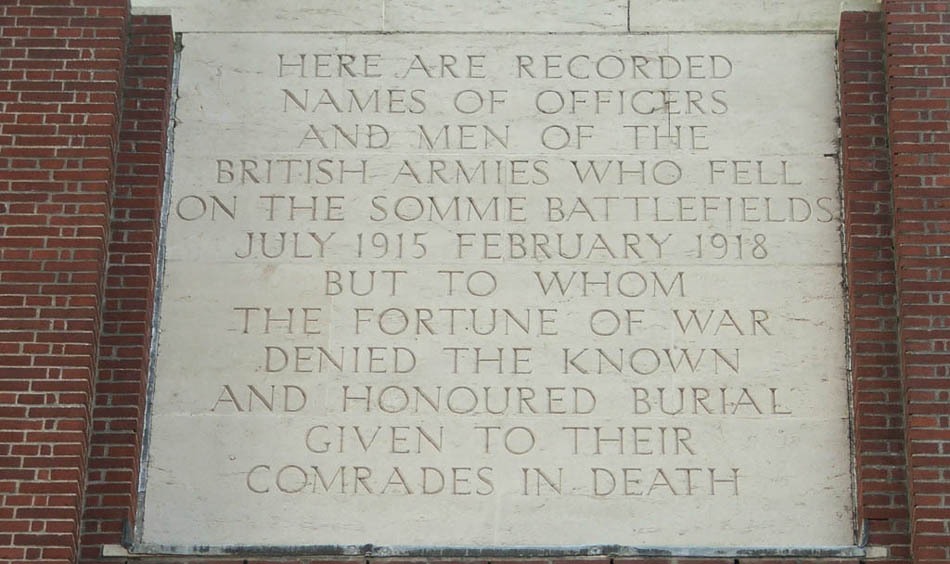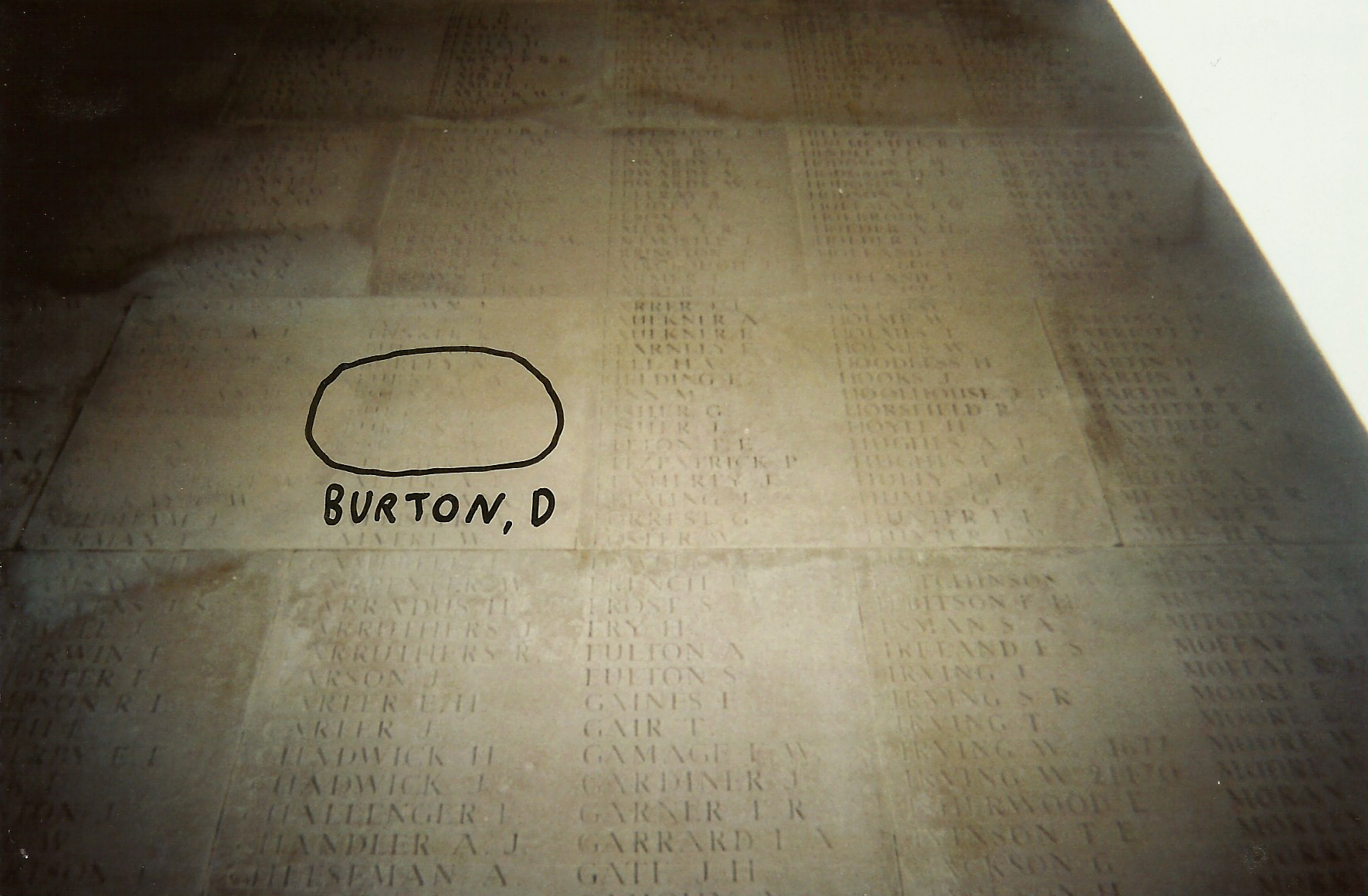David Burton
(Click any thumbnail image to view full size)
Family
14 year old David appears on the 1901 Census living at 7 Chatterton Street, Salford, Lancashire, with his widowed mother, Mary Jane Burton (52) and his three sisters; Harriet (9), Ellen (17) and Jessie (21) . Both Ellen and Jessie are employed as cotton weavers, with 14 year old David, having already left education, working as a "machine minder". Their Father, Thomas, died sometime between 1891-1901. David also had a brother and another sister listed on the 1891 census, but they either moved out of the family home, or possibly died prior to the 1901 census. Chatterton street today is the site of a large council pay and display car park, all of the homes are no longer there.
By 1911, their mother, Mary Jane had died, and David (now 24 years old) was living at 128 West Park Street with his older sister Jessie (31), and her husband Andrew Dyson (also 31). David and Jessie's younger sister Harriet (18) was also living there. Ellen had married (married name Elliot) and moved to 2 Stone Street, Salford.
West Park Street has also been the victim of re-delopment, as the whole are is now occupied by 1960s era houses.
1891 Census
1901 Census
1911 Census
David BURTON (Private)
17613, Border Regiment - Served with the 7th Battalion (from 24 Nov 1914), 3rd Battalion (19 Sept 1916) and 1st Battalion (from 20 Oct 1916)
Single 1914-15 Star
David signed up to the army, aged 28, shortly after the outbreak of war, on the 14th November 1914, answering Kitchener's call for recruits, and orering the hasty formation of a "New Army". He was posted to the 7th Battalion, which was under command of the 51st Brigade, part of the 17th (Northern) Division. Early days were somewhat chaotic, as there was a dire shortage of trained officers and senior NCOs (non-commisioned officers) to command and train them. They located to the Wool area of Dorset for training, before moving to Winchester in May 1915. Initially the 17th Division was to be used for home defence, but they were subsequently ordered to embark for France. David landed there with the rest of the 7th Borders on 14th July 1915 (not the 24th as the Medal Index Card states). They concentrated in St Omer for instruction in Trench Warfare.
The 7th Borders were on the line on 13th September 1915, suffering three casualties. On the 25th September the 7th Borders supported an attack by the 3rd and 14th Divisions, near Hooge, during which the battalion bombers had to go into action to keep the enemy at bay. 9 men were killed and 17 wounded. For the rest of 1915 David's battalion was in and out of line around the Hooge/Sanctuary Wood area of the Ypres salient, alternating front line duty with reserve and rest. The deadly Ypres Salient took a heavy toll on the 7th Battalion, Border Regiment and by the end of 1915 casualties had reduced the 31 officers and 932 other ranks, to 18 officers and 393 other ranks.
In January 1916, the depleted 7th Borders moved to rest at St Omer for a month, to rest and recieve reinforcements. On 7th February 1916 they moved to Divisional reserve in Poperinge, Flanders, being involved in an attempt to dislodge the enemy on its section of front at the price of 21 men's lives. They then moved to Dickebusch, on to Bailleul and Houplines and to a training camp at Eperlecques, where they moved into billets at Merlancourt. It was June 1916 and the "big push" at the Somme loomed heavy on the horizon for the British Army. David and the 7th Borders moved to Fricourt Wood on the 2nd July 1916, the day after the opening attack, and attacked Bottom Wood at 3 a.m. On the morning of July 3rd. They later took Railway Alley then pushed on and consolidated Bottom Wood. They were relieved back to dugouts in Fricourt Wood during the evening of 3rd/4th July.
On the 12th July 1916 he suffered a gunshot wound to the back, and was sent back to England for treatment. Initially at Dartford Hospital, Kent, before being released on leave to visit his sisters in Salford, before returning to hospital in Manchester. While in England, he was assigned to the 3rd (Reserve) Battalion, Border Regiment, who were based in the UK for the duration of the war. David was deemed to be fit enough to return to France, and on the 6th October landed there to join up with the 1st Battalion.
After training, instruction and route marches in early January, the battalion moved to take up frontline positions on the Transloy ridge area near the river Somme, France on the 21st January 1917. after relief the following evening, they had a day of rest, followed by two days of assault trainging, before returning to the line. On the 27th at 05:30am they attacked a stretch known as "Landwehr Trench".
On the 27th January 1917, David Burton was one of the 12 men of the 1st Battalion, Border Regiment killed on that day during the attack at Transloy ridge. In a letter, dated May 1917, David's sister Jessie wrote to the War Office informing them that although she had received some photos, cards and a coin that had been recovered from her Brother's body, the set of false teeth she had also been sent were not his, as "he only had a top set" and those they had sent were a bottom set. She also asks the whereabouts of his wristwatch, wallet and a ring that she never received. The letter, written in her own hand, is below (click to enlarge).
David Burton's grave was one of the great many which was lost, and he remembered, with honour, on the Thiepval Memorial along with 72,245 others; The "missing" of the Somme area of France 1915-1918. The memorial, as well as a photo of David's name are below. Click any image to enlarge.
David Burton - Medal Index Card
David Burton - Medal Roll
David Burton - Serivce Record (36 page PDF)
David Burton - Thiepval Memorial Register entry
David Burton - Thiepval Memorial Panel List
David Burton - Entry in "Soldiers Died"
David Burton - Memorial Certificate (PDF)
David Burton - 1st Border Regt War Diary covering 27th January 1917 - Page 1 , 2
David Burton - In the army "Personal Effects" record
 The Invicta Medal Museum (Online)
The Invicta Medal Museum (Online) 